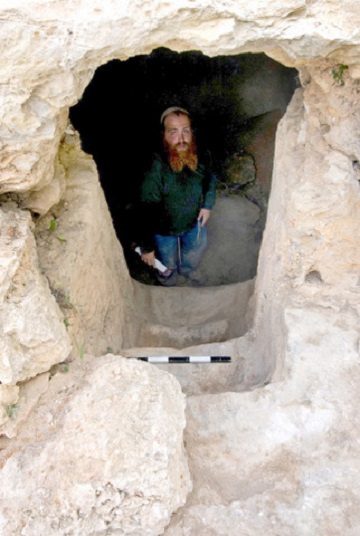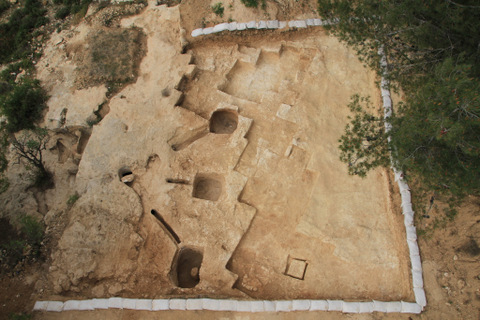2,000-Year-Old Ritual Bath Found in Jerusalem

Get the world’s most fascinating discoveries delivered straight to your inbox.
You are now subscribed
Your newsletter sign-up was successful
Want to add more newsletters?

Delivered Daily
Daily Newsletter
Sign up for the latest discoveries, groundbreaking research and fascinating breakthroughs that impact you and the wider world direct to your inbox.

Once a week
Life's Little Mysteries
Feed your curiosity with an exclusive mystery every week, solved with science and delivered direct to your inbox before it's seen anywhere else.

Once a week
How It Works
Sign up to our free science & technology newsletter for your weekly fix of fascinating articles, quick quizzes, amazing images, and more

Delivered daily
Space.com Newsletter
Breaking space news, the latest updates on rocket launches, skywatching events and more!

Once a month
Watch This Space
Sign up to our monthly entertainment newsletter to keep up with all our coverage of the latest sci-fi and space movies, tv shows, games and books.

Once a week
Night Sky This Week
Discover this week's must-see night sky events, moon phases, and stunning astrophotos. Sign up for our skywatching newsletter and explore the universe with us!
Join the club
Get full access to premium articles, exclusive features and a growing list of member rewards.
Archaeologists in Jerusalem say they've found a 2,000-year-old ritual bath with a sophisticated system to keep water pure, Israel's Antiquities Authority (IAA) announced.
The bath, known as a miqwe or mikveh, was found at a site in southwest Jerusalem's Kiryat Menachem quarter, and researchers say it had a unique water supply system. The miqwe collected rainwater from three basins, which were cut into the roof of the bath, and sent water into an underground immersion chamber through channels, explained IAA excavation director Benyamin Storchan.
Storchan said in a statement that this system was more complex than that of other baths of the same time period, which typically had a small rock-cut pool nearby that supplied rainwater to the underground chamber.
"It is interesting to note that the bath conforms to all of the laws of kashrut (the set of Jewish dietary laws), like collecting the water in it naturally without human contact, and ensuring that the water does not seep into the earth, which is why the bath was treated with a special kind of plaster," the archaeologist added.
The bath was associated with a settlement of the Second Temple period, and it apparently got a new life as a quarry after it went out of use. As recently as the 20th century, a hole was cut in the the immersion chamber's ceiling and it was used as a cistern.
Excavations at the site were taking place ahead of the construction of a new road. Development projects in Israel often expose remnants of the region's rich history. Ahead of the construction of a new Israeli railroad line to the city of Karmiel, researchers recently found a carving of a penis that's more than 6,000 years old. And animal and human figurines, some more than 9,000 years old, have been found at Tel Motza, a site being excavated to make room for the expansion of Highway 1, the main road connecting Jerusalem and Tel Aviv.
According to the Jerusalem district archaeologist, Amit Re'em, the community hopes to conserve the miqwe, and the IAA and developers are working to make the site available to the public.
Get the world’s most fascinating discoveries delivered straight to your inbox.
Follow Megan Gannon on Twitter and Google+. Follow us @livescience, Facebook & Google+. Original article on LiveScience.com.

 Live Science Plus
Live Science Plus











